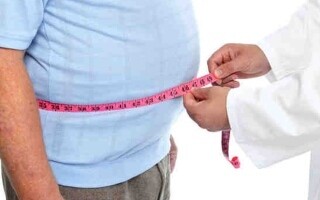
People following certain diets often face the problem of weight loss. They eliminate from their diet carbohydrates, sugars, and fats, focusing on walking or running long distances, but it turns out that getting rid of stubborn excess weight is not easy. Professor Franklyn Joseph, a weight loss specialist, notes that many beneficial habits in a diet can actually undermine all your efforts. "People are drawn to trendy healthy habits because they promise quick results and correspond to the urge for immediate gratification. Unfortunately, such trends are often devoid of scientific support and do not consider the subtle differences in each individual's health," the doctor emphasizes.
He also mentions that diets that necessitate completely eliminating food groups or significantly restricting calories often evoke feelings of deprivation, which ultimately leads to fatigue and the return of excess weight. The uniqueness of a successful weight loss lies in following habits that suit you specifically, and not in restricting them. The doctor highlighted 8 widespread habits that can hinder weight loss:
Skipping meals. Professor Joseph warns that skipping meals often leads to eating later in the day and disrupts your metabolism. This can be corrected by relying on balanced meals and portion-controlled snacks.
Sugary drinks. Diet sodas can mess with your body by increasing appetite due to artificial sweeteners. These drinks can lead to overeating later, so it's better to drink water or herbal tea.
Pre-packaged snacks. Granola, nut mixes, and veggie chips can be marketed as healthy, but they often contain a lot of sugar, calories, and salt.
Overemphasis on cardio. Cardio activities like running or cycling are good for the heart, but too much can hinder weight loss. It's important to pair cardio with strength training to boost metabolism and improve substance exchange.
Excessive tracking of fitness trackers. Trackers can be motivating, but they can also lead to obsession, causing you to obsess over burned calories and obsessively evaluate food.
Eliminating gluten without medical necessity. The absence of gluten in a diet can lead to weight gain because gluten-free products may contain more unhealthy fats and sugars.
Choosing low-fat foods. Such products often contain more sugar and additives, which can also hinder weight loss.
Focusing on the amount of calories consumed. Counting calories can help at the start of a diet, but it is not an optimal method for the long term. It's best to focus on nutritious foods that are filling and provide energy.














